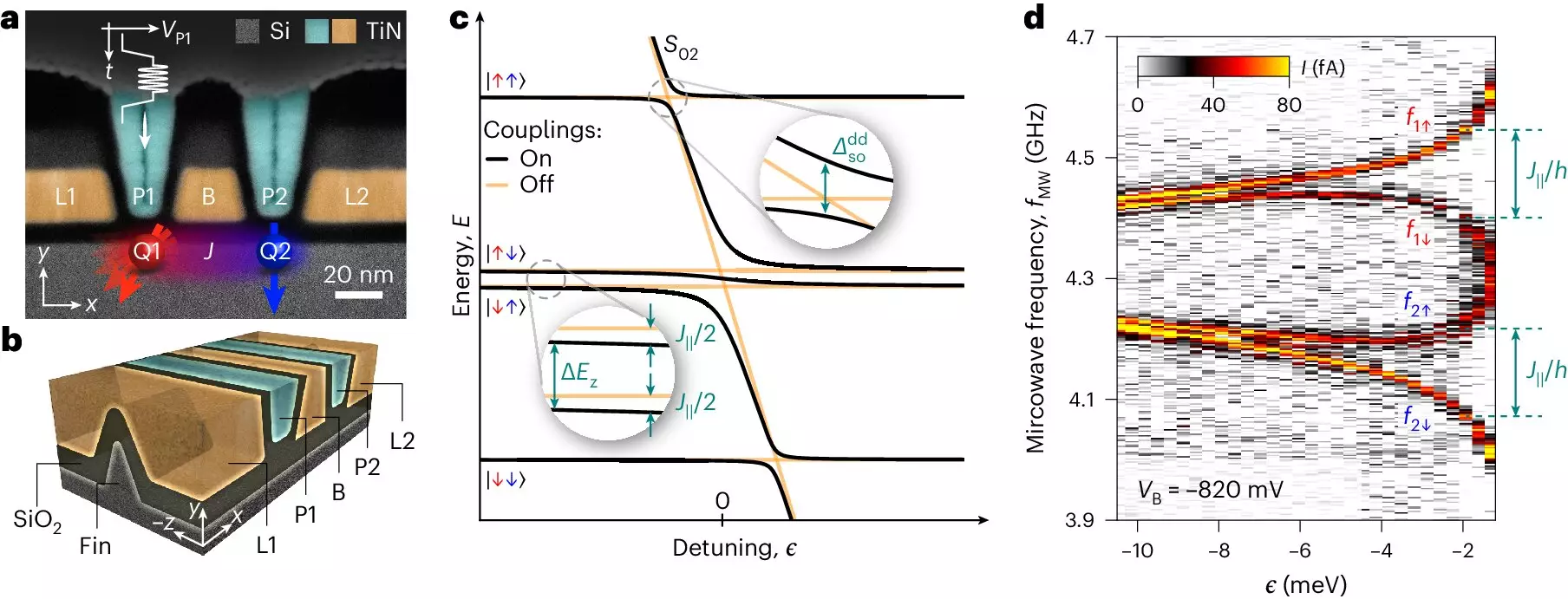Quantum computing has the potential to revolutionize the way we process, transfer, and store information. Researchers worldwide are exploring various qubit technologies to make practical quantum computers a reality. One recent breakthrough involves achieving a controllable interaction between two hole spin qubits in a conventional silicon transistor, paving the way for integrating millions of qubits on a single chip using mature manufacturing processes.
Qubits serve as the building blocks of quantum computers, responsible for handling data processing, transfer, and storage. For a quantum computer to function effectively, qubits must reliably store and rapidly process information. The key to efficient information processing lies in stable and fast interactions between a large number of qubits whose states can be controlled from the outside. However, existing quantum computers with a limited number of qubits can only perform tasks that traditional computers can already handle efficiently.
Researchers at the University of Basel and the NCCR SPIN are focusing on leveraging hole spin qubits in silicon transistors to address the scalability and speed challenges of quantum computing. By using the spin properties of electrons or holes, researchers can achieve electrically controlled qubits without the need for additional components, such as micromagnets. The recent success in trapping and utilizing hole spins in electronic devices like FinFETs demonstrates the potential of silicon-based qubits for quantum computing applications.
To perform calculations in a quantum computer, quantum gates are essential. These gates manipulate qubits and enable them to interact with each other. The recent breakthrough in achieving a controllable interaction between two qubits within a silicon transistor setup marks a significant milestone. Researchers were able to couple two qubits and induce a controlled spin-flip based on the state of the other qubit’s spin. This achievement opens up the possibility of implementing faster and more reliable two-qubit gates for quantum computations.
One of the key advantages of using hole spins in silicon qubits is the anisotropy of their exchange interaction. This anisotropy, influenced by spin-orbit coupling, allows for the implementation of two-qubit gates without compromising on speed or fidelity. By combining experimental and theoretical approaches, researchers have demonstrated that hole spin qubits are highly scalable, fast, and robust, making them a promising candidate for large-scale quantum computing.
The successful demonstration of controlled interactions between hole spin qubits in silicon transistors represents a significant advancement in the field of quantum computing. By leveraging existing manufacturing processes for silicon chips, researchers are paving the way for the integration of millions of qubits on a single chip. This breakthrough brings us closer to the realization of practical quantum computers that can outperform traditional computing systems in terms of speed and efficiency. The study underscores the strong potential of silicon-based qubits in the development of large-scale quantum computing technologies.



Leave a Reply